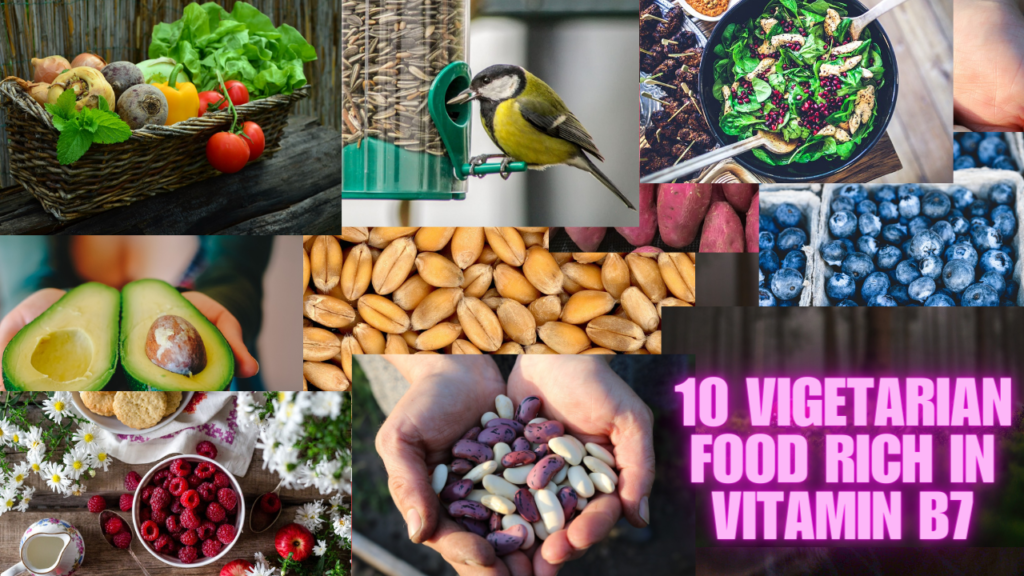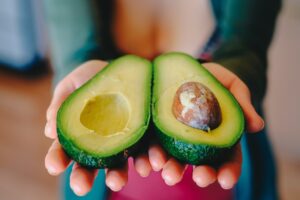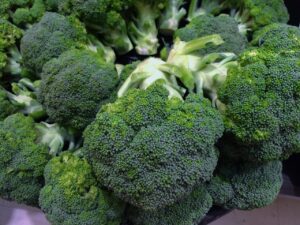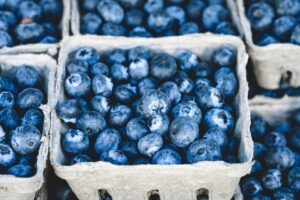
10 VIGETARIAN FOOD RICH IN VITAMIN B7
Also known as vitamin b7 or H, biotin is a water soluble vitamin that plays a crucial part in various matabolic processes within the body. it helps in metabolish of fats, carbohydrates, and amino acid, to support healthy skin, hair, nails, and overall cellular function.
Almonds: A handful of almonds serves as an excellent snack, offering a healthy dose of biotin along with other nutrients like protein and healthy fats.
Healthy Benefits of Almonds:
Almonds are said to be beneficial for your health, but in what ways is the question that you need to ask yourself. So, what are the health benefits of almonds and what good would this nut do if it is added to your daily diet? Well, here are some scientifically proven benefits of almonds and their usages.
Almonds have a Rich Source of Antioxidants:
Almonds have a rich source of antioxidants that can protect you against stress. Stress leads to molecule damage that thereby results in inflammation, cancer and ageing. The antioxidants prevalent in almonds benefit your skin. However, consuming 84 grams of almonds per day can increase the levels of antioxidants in your body that will protect you from ageing and various other diseases.
Almonds Treat Acne and Blackheads:
Almonds are considered to be the best remedy that can prevent and fight acne, blackheads and whiteheads through the fatty acids found in them. These fatty acids control the oil that gets clogged in these skin pores and thus when the almond oil is applied to your skin it also helps in reducing skin rashes.
Powerful Nutrition
Almonds are one of the most nutrient-dense foods around. Just one handful (30g or around 23 almonds) per day offers an impressive array of vitamins, minerals and other nutrients to keep you going throughout the day.
Sweet potatoes:
Rich in many other vitamins and minerals, these are a versatile addition to meals, providing a delicious way to boost biotin intake. Sweet potatoes are not only rich in biotin but also a storehouse of other essential nutrients. They contain beta-carotene, a powerful antioxidant that converts to vitamin A in the body. Additionally, sweet potatoes provide dietary fibre, which aids digestion and promotes a feeling of fullness.
Sweet potatoes are nutritious, packing a good amount of vitamin A, vitamin C, and manganese into each serving. They also have anticancer properties and may promote immune function and other health benefits.
-
Nutritional Benefits:
- Rich in vitamins and minerals, particularly vitamin A, vitamin C, and potassium.
- Good source of fiber, which aids in digestion and promotes a feeling of fullness.
- Contains antioxidants, such as beta-carotene, which may have various health benefits.
-
Varieties:
- There are several varieties of sweet potatoes, and they come in different colors, including orange, purple, and white.
- The two main types are “firm” or “dry” sweet potatoes and “soft” or “moist” sweet potatoes. The former has a dry, starchy texture, while the latter has a soft, sweet, and moist texture.
-
Cooking Methods:
- Sweet potatoes can be cooked in various ways, including boiling, baking, roasting, steaming, or frying.
- They are commonly used in both sweet and savory dishes, such as casseroles, pies, fries, and soups.
-
Health Benefits:
- The high fiber content may contribute to better digestion and regulate blood sugar levels.
- The antioxidants in sweet potatoes may have anti-inflammatory and anti-cancer properties.
- They are considered a nutritious option for those looking to maintain a healthy diet.
-
Storage:
- Sweet potatoes should be stored in a cool, dark, and well-ventilated place.
- Avoid storing them in the refrigerator, as this can alter their taste and texture.
-
Culinary Uses:
- Sweet potatoes can be used in a variety of dishes, from savory to sweet. Common preparations include mashed sweet potatoes, sweet potato fries, and sweet potato pie.
-
Cultural Significance:
- Sweet potatoes are a staple in many cuisines around the world and are often associated with traditional and festive meals.

- Sweet potatoes are a staple in many cuisines around the world and are often associated with traditional and festive meals.
Remember that while sweet potatoes are nutritious, it’s essential to balance your diet with a variety of foods to ensure you get a broad range of nutrients.
Sunflower seeds:
These tiny seeds are a powerhouse of biotin and can be sprinkled over salads, yoghurts, or enjoyed as a snack.
Indeed, sunflower seeds are small in size but pack a nutritional punch. Here are some key points about sunflower seeds:
-
Rich in Biotin:
- Biotin, also known as vitamin B7, is essential for the metabolism of fats, carbohydrates, and proteins. It plays a role in maintaining healthy skin, hair, and nails.
-
Nutritional Content:
- Sunflower seeds are a good source of various nutrients, including vitamin E, magnesium, selenium, and copper.
- They also provide healthy fats, particularly monounsaturated and polyunsaturated fats.
-
Versatile Use:
- Sunflower seeds can be sprinkled over salads, yogurts, or added to cereals for an extra crunch.
- They make a nutritious and convenient snack on their own.
-
Snacking Option:
- Eating sunflower seeds as a snack can be a healthy alternative to processed snacks, providing a satisfying crunch along with valuable nutrients.
-
Antioxidant Properties:
- Sunflower seeds contain antioxidants, such as vitamin E and selenium, which help protect cells from damage caused by free radicals.
-
Heart Health:
- The healthy fats in sunflower seeds, along with other nutrients like magnesium, contribute to heart health by helping to maintain healthy blood vessels and lower blood pressure.
-
Protein Content:
- Sunflower seeds are a good plant-based source of protein, making them a suitable addition to vegetarian and vegan diets.
-
Dietary Fiber:
- They also provide dietary fiber, which aids in digestion and helps maintain a feeling of fullness.
-
Buying and Storage:
- When buying sunflower seeds, look for those that are unsalted and without added oils.
- Store them in a cool, dry place to prevent them from becoming rancid.
-
Allergies:
- Some individuals may be allergic to sunflower seeds, so it’s important to be aware of potential allergic reactions.
Incorporating sunflower seeds into your diet can be an enjoyable way to enhance both the flavor and nutritional content of your meals and snacks. As with any food, moderation is key to maintaining a balanced and diverse diet.

Whole grains:
Whole grains like oats, barley, and brown rice contain decent levels of biotin, making them an integral part of a biotin-rich diet.
While whole grains like oats, barley, and brown rice do contain some biotin, it’s important to note that the levels may not be as high as in some other food sources. Biotin is generally found in a variety of foods, and while these grains contribute to overall biotin intake, they might not be considered primary sources. Here are some points about biotin in whole grains:
-
Biotin Content:
- Whole grains contain biotin, but the levels may vary. Biotin is generally found in small amounts in a variety of foods.
- Other good sources of biotin include nuts, seeds, eggs, dairy products, and certain vegetables.
-
Nutritional Benefits:
- Whole grains are rich in various nutrients, including fiber, vitamins, and minerals.
- They provide complex carbohydrates that can contribute to sustained energy levels.
-
Incorporating Whole Grains:
- Including a variety of whole grains in your diet is beneficial for overall health. Oats, barley, and brown rice, for example, can be part of a balanced and nutritious meal plan.
-
Dietary Diversity:
- While whole grains are a valuable component of a healthy diet, it’s crucial to include a diverse range of foods to ensure you get a broad spectrum of nutrients.
-
Preparation Methods:
- Opt for whole grains rather than refined grains to maximize nutritional benefits.
- Cooking methods, such as boiling or steaming, can help retain the nutritional content of grains.
-
Biotin-Rich Diet:
- To ensure an adequate intake of biotin, it’s recommended to include a variety of biotin-rich foods in your diet, such as organ meats, eggs, nuts, seeds, and certain vegetables.
-
Consideration for Biotin Needs:
- Individuals with certain medical conditions or those taking medications that may interfere with biotin absorption should consult with a healthcare professional.
While whole grains contribute to overall nutritional well-being, if you’re specifically focusing on biotin intake, it might be beneficial to include a variety of foods rich in this vitamin in your diet. As always, maintaining a balanced and varied diet is essential for optimal health.

Avocado:
Besides being a source of healthy fats, avocados not only support your health but also add a creamy texture to various dishes.
Indeed, avocados are not only a delicious addition to meals but also offer several health benefits. Here are some key points about avocados:
-
Healthy Fats:
- Avocados are rich in monounsaturated fats, particularly oleic acid, which is considered heart-healthy. These fats may help improve cholesterol levels and reduce the risk of heart disease.
-
Nutrient-Rich:
- Avocados are a good source of various nutrients, including potassium, vitamin K, vitamin E, vitamin C, and B-vitamins. They also contain small amounts of magnesium, manganese, copper, iron, zinc, and phosphorus.
-
Fiber Content:
- Avocados are a good source of dietary fiber, which supports digestive health, helps regulate blood sugar levels, and contributes to a feeling of fullness.
-
Creamy Texture:
- The creamy texture of avocados makes them a versatile ingredient in the kitchen. They can be mashed and spread on toast, added to salads, blended into smoothies, or used as a topping for various dishes.
-
Antioxidant Properties:
- Avocados contain antioxidants, including carotenoids such as lutein and zeaxanthin, which are beneficial for eye health.
-
Skin Health:
- The healthy fats and antioxidants in avocados may contribute to skin health, promoting a youthful appearance.
-
Weight Management:
- Despite being calorie-dense, avocados’ nutrient profile and healthy fats make them a satisfying and nutrient-dense addition to a meal, which can contribute to weight management.
-
Versatility in Cooking:
- Avocados can be used in a variety of dishes, from savory to sweet. They can be sliced, diced, mashed, or blended, offering a creamy and rich texture to a wide range of recipes.
-
Balanced Diet:
- Including avocados as part of a balanced diet can contribute to overall nutritional well-being. However, moderation is key due to their calorie content.
-
Ripening Process:
- Avocados are typically purchased when they are still firm and allowed to ripen at room temperature. The flesh softens as it ripens, and the flavor becomes richer.
Including avocados in your diet is a tasty way to incorporate a variety of nutrients and healthy fats. Whether enjoyed on their own or as an ingredient in various dishes, avocados can be a valuable addition to a well-rounded and nutritious diet.

Legumes:
Beans, lentils, and peas are not only excellent sources of plant-based protein but also provide a good amount of biotin.

Legumes, including beans, lentils, and peas, are indeed excellent sources of plant-based protein and offer various nutritional benefits, including a modest amount of biotin. Here are some key points about legumes:
-
Plant-Based Protein:
- Legumes are rich in protein, making them a valuable source of this essential nutrient for individuals following vegetarian or vegan diets. Protein is crucial for muscle maintenance, immune function, and overall health.
-
Biotin Content:
- While legumes do contain biotin, the levels may not be as high as in some other foods. Biotin is generally found in small amounts in a variety of foods.
- Consuming a variety of biotin-rich foods, including legumes, as part of a balanced diet helps ensure adequate biotin intake.
-
Dietary Fiber:
- Legumes are high in dietary fiber, which supports digestive health, helps regulate blood sugar levels, and contributes to a feeling of fullness.
-
Nutrient-Rich:
- In addition to protein and biotin, legumes provide a range of essential nutrients, including iron, zinc, magnesium, folate, and various B-vitamins.
-
Low in Fat:
- Legumes are generally low in fat and contain mostly healthy, unsaturated fats. This makes them a heart-healthy food choice.
-
Versatility in Cooking:
- Legumes can be used in a variety of dishes, such as soups, stews, salads, and curries. They can be enjoyed on their own or as a complement to other ingredients.
-
Affordability:
- Legumes are often more affordable than some animal protein sources, making them an economical choice for individuals on a budget.
-
Sustainable Protein Source:
- Legumes have a lower environmental impact compared to some animal protein sources, contributing to sustainable and environmentally friendly dietary choices.
-
Cooking Tips:
- Soaking legumes before cooking can help reduce cooking time and improve nutrient absorption.
- Adding herbs, spices, and other flavorings enhances the taste of legume-based dishes.
Including a variety of legumes in your diet is a great way to ensure a diverse intake of nutrients, including protein and biotin. As with any food group, it’s important to consume legumes as part of a well-balanced diet to meet overall nutritional needs.

Mushrooms:
Certain types of mushrooms, such as portobello and shiitake, offer biotin, adding a savory flavour to various recipes.
Mushrooms, including varieties like portobello and shiitake, can indeed contribute to biotin intake and add a savory flavor to a variety of recipes. Here are some key points about mushrooms and their nutritional benefits:
-
Biotin Content:
- Certain types of mushrooms, including portobello and shiitake, contain biotin. Biotin is a B-vitamin that plays a role in various metabolic processes, including the metabolism of fats, carbohydrates, and proteins.
-
Other Nutrients:
- Mushrooms are a good source of various nutrients, including vitamins (such as vitamin D when exposed to sunlight), minerals (such as selenium and potassium), and antioxidants.
-
Savory Flavor:
- Mushrooms have a rich, savory flavor that can enhance the taste of a wide range of dishes. They are often used in soups, stir-fries, pasta dishes, and more.
-
Umami Taste:
- The umami taste of mushrooms, often described as savory and meaty, makes them a popular choice for adding depth to vegetarian and vegan dishes.
-
Low in Calories:
- Mushrooms are low in calories and can be a great addition to meals for those looking to manage their calorie intake.
-
Versatility in Cooking:
- Mushrooms can be prepared in various ways, including sautéing, roasting, grilling, or adding them to stews and soups. They are also commonly used as a meat substitute in vegetarian dishes.
-
Varieties:
- Different types of mushrooms offer unique flavors and textures. Portobello mushrooms are known for their large size and meaty texture, while shiitake mushrooms have a distinctive taste and are often used in Asian cuisine.
-
Nutritional Value:
- While mushrooms provide certain nutrients, it’s essential to note that they might not be a significant source of certain vitamins and minerals compared to other foods. However, they can contribute to overall nutritional diversity.
-
Cooking Tips:
- To preserve the nutritional content of mushrooms, it’s best to cook them lightly. Overcooking can lead to nutrient loss.
Including a variety of mushrooms in your diet is a flavorful way to diversify your meals while potentially benefiting from their biotin content and other nutritional contributions. As with any food, moderation and balance are key to maintaining a healthy and varied diet.

Spinach:
Packed with a multitude of nutrients, spinach is also a source of biotin. Include it in salads, smoothies, or sauté it as a side dish.

Spinach is indeed a nutrient-rich leafy green vegetable that offers a variety of health benefits. Here are some key points about spinach and its nutritional content:
-
Biotin Content:
- Spinach contains biotin, a B-vitamin that plays a role in various metabolic processes, including the breakdown of fats, carbohydrates, and proteins.
-
Nutrient-Rich:
- Spinach is packed with a multitude of nutrients, including vitamins such as vitamin A, vitamin C, vitamin K, and folate. It also provides minerals like iron, magnesium, and potassium.
-
Antioxidants:
- Spinach is rich in antioxidants, including beta-carotene and lutein, which contribute to the vegetable’s health-promoting properties.
-
Dietary Fiber:
- Spinach is an excellent source of dietary fiber, which supports digestive health, helps regulate blood sugar levels, and promotes a feeling of fullness.
-
Low in Calories:
- Spinach is low in calories, making it a nutrient-dense option for those looking to manage their calorie intake.
-
Versatility in Cooking:
- Spinach is a versatile ingredient that can be incorporated into a variety of dishes. It can be enjoyed raw in salads, blended into smoothies, sautéed as a side dish, or added to soups and stews.
-
Iron Source:
- While spinach contains iron, it’s important to note that the iron in plant foods (non-heme iron) is not as readily absorbed by the body as the iron in animal products (heme iron). Consuming vitamin C-rich foods alongside iron-rich plant foods can enhance iron absorption.
-
Calcium Content:
- Spinach contains calcium, but similar to iron, the calcium in plant foods may not be as bioavailable as the calcium in dairy products. A diverse diet with various calcium sources is essential for those following a plant-based diet.
-
Fresh and Frozen Options:
- Both fresh and frozen spinach are nutritious options. Frozen spinach can be a convenient choice for those looking to extend the shelf life of this leafy green.
-
Preparation Tips:
- Lightly cooking spinach can help preserve its nutrient content, and pairing it with foods high in vitamin C can enhance nutrient absorption.
Including spinach in your diet is a delicious and nutritious way to boost your overall intake of vitamins, minerals, and biotin. Whether eaten raw or cooked, spinach is a versatile addition to a variety of meals.

Broccoli:
This cruciferous vegetable is not only rich in biotin but also provides a plethora of health benefits when added to your meals.
While broccoli is a nutritious cruciferous vegetable with many health benefits, it’s important to note that it is not a significant source of biotin. Biotin is found in relatively low amounts in most vegetables, including broccoli. However, broccoli offers a wide range of other essential nutrients that contribute to overall health. Here are some key points about broccoli:
-
Nutrient-Rich:
- Broccoli is rich in various vitamins and minerals, including vitamin C, vitamin K, vitamin A, folate, potassium, and manganese.
-
Fiber Content:
- Broccoli is an excellent source of dietary fiber, which supports digestive health, helps regulate blood sugar levels, and promotes a feeling of fullness.
-
Antioxidant Properties:
- Broccoli contains antioxidants, such as sulforaphane, which may have anti-inflammatory and potential cancer-fighting properties.
-
Biotin Content:
- While broccoli does contain biotin, it is not considered a significant source of this vitamin. Biotin is more commonly found in other foods like meats, eggs, nuts, and seeds.
-
Low in Calories:
- Broccoli is low in calories, making it a nutrient-dense and weight-friendly option.
-
Versatility in Cooking:
- Broccoli can be enjoyed in various ways, including steamed, roasted, sautéed, or added to salads, stir-fries, and soups.
-
Bone Health:
- The vitamin K and calcium content in broccoli contribute to bone health.
-
Heart Health:
- The fiber, potassium, and antioxidants in broccoli may contribute to heart health by helping to regulate blood pressure and cholesterol levels.
-
Culinary Tips:
- To retain the maximum nutritional value, it’s recommended to lightly cook broccoli. Overcooking can lead to nutrient loss.
While broccoli may not be a significant source of biotin, it is a valuable addition to a well-balanced diet due to its array of nutrients and potential health benefits. Including a variety of vegetables in your meals ensures a diverse range of nutrients to support overall well-being.

Berries:
Blueberries, raspberries, and strawberries offer a touch of sweetness along with biotin, making them a nutritious addition to your diet.

While berries such as blueberries, raspberries, and strawberries are indeed delicious and nutritious, it’s important to clarify that they are not significant sources of biotin. Biotin is typically found in higher amounts in foods such as organ meats, eggs, nuts, seeds, and certain vegetables. However, berries do offer a host of other health benefits. Here are some key points about berries:
-
Antioxidant-Rich:
- Berries are rich in antioxidants, including vitamins C and A, as well as flavonoids. These compounds help neutralize free radicals in the body, which may contribute to various health benefits.
-
Vitamin C Content:
- Berries, particularly strawberries, are a good source of vitamin C, which is essential for immune function, skin health, and collagen synthesis.
-
Dietary Fiber:
- Berries are high in dietary fiber, which supports digestive health, helps regulate blood sugar levels, and contributes to a feeling of fullness.
-
Low in Calories:
- Berries are relatively low in calories, making them a nutrient-dense and flavorful snack or addition to meals.
-
Natural Sweetness:
- Berries provide a natural sweetness to dishes without the need for added sugars. This can be particularly beneficial for those looking to reduce their added sugar intake.
-
Versatility in Culinary Use:
- Berries can be enjoyed fresh, added to salads, blended into smoothies, used as toppings for yogurt or oatmeal, or incorporated into various desserts.
-
Potential Health Benefits:
- Regular consumption of berries has been associated with various health benefits, including improved cognitive function, reduced risk of certain chronic diseases, and enhanced heart health.
-
Colorful Phytonutrients:
- The vibrant colors of berries are indicative of the presence of phytonutrients, which have been linked to health-promoting properties.
While berries may not be a direct source of biotin, they are a delicious and nutritious addition to a balanced diet. Including a variety of fruits, vegetables, and other nutrient-rich foods ensures a diverse intake of essential nutrients to support overall well-being.

